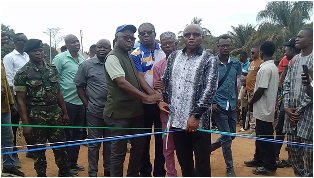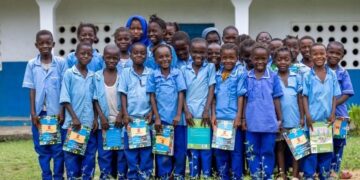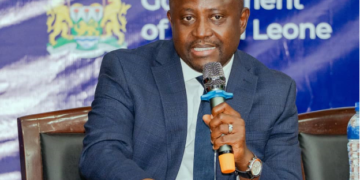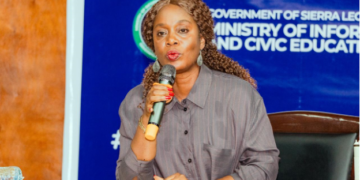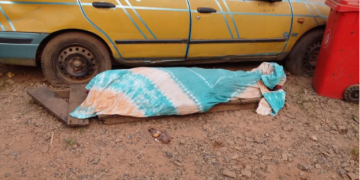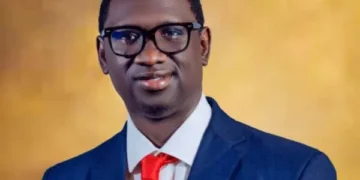By Alpha Amadu Jalloh
In a recent address that has sparked widespread outrage, Sierra Leone’s Minister of Finance, Sheku Ahmed Fanta Madi Bangura, declared that his personal life has improved over the past seven years. This statement, made amidst a backdrop of economic hardship and social unrest, highlights a glaring disconnect between the nation’s leadership and its citizens.
The minister’s assertion comes at a time when the majority of Sierra Leoneans are grappling with escalating inflation, unemployment, and a deteriorating standard of living. While the government’s 2024 budget, themed “Restoring Macroeconomic Stability While Protecting the Poor and Vulnerable,” promises economic growth and stability, the reality on the ground tells a different story. According to the Ministry of Finance, the 2024 budget amounts to NLe 21.46 billion, a 56% increase from the previous year, with projections of a 4.7% economic growth rate. However, these figures offer little solace to the average citizen facing daily struggles to make ends meet.
The government’s optimistic projections are further undermined by the nation’s rising debt levels. The Semi-Annual Public Debt Statistical Bulletin reveals that Sierra Leone’s public debt has surged, raising concerns about the country’s fiscal sustainability. Despite the government’s efforts to implement a Medium-Term Debt Strategy, the burden of debt servicing continues to strain public finances, limiting the government’s ability to invest in critical sectors such as health, education, and infrastructure.
Moreover, the government’s flagship “Feed Salone” project, aimed at boosting agricultural productivity and ensuring food security, has yet to yield tangible results. Many rural communities remain impoverished, with limited access to basic amenities and services. The disconnect between policy announcements and actual implementation has eroded public trust in the government’s ability to effect meaningful change.
The minister’s remarks also underscore a broader issue of accountability and empathy within the nation’s leadership. While top officials boast of personal advancements, they appear indifferent to the plight of ordinary citizens. This lack of empathy is evident in the government’s handling of the energy crisis, where, despite a disbursement of US$18.5 million to alleviate power shortages, many areas continue to experience frequent blackouts, disrupting daily life and economic activities.
Furthermore, the government’s efforts to engage citizens through initiatives like the “Citizen’s Guide to the National Budget” have been criticized as superficial. While these initiatives aim to promote transparency, they often fail to address the core issues affecting citizens, such as corruption, mismanagement, and lack of service delivery.
The situation is exacerbated by the government’s reliance on international financial institutions for support. The International Monetary Fund’s approval of a 38-month arrangement under the Extended Credit Facility, amounting to approximately US$248.5 million, is intended to bolster economic reforms. However, without robust domestic policies and genuine commitment to change, such external assistance may only provide temporary relief. That fund has now been suspended until June, when the government of Sierra Leone implements fiscal policies agreed on this April.
The Minister of Finance’s declaration of personal prosperity amidst national adversity is not only tone-deaf but also indicative of a leadership that is out of touch with its people. For Sierra Leone to overcome its challenges, there must be a concerted effort to bridge the gap between policy and practice, prioritize the welfare of citizens, and foster a culture of accountability and empathy within the government. Only then can the nation hope to achieve true economic and social transformation.


